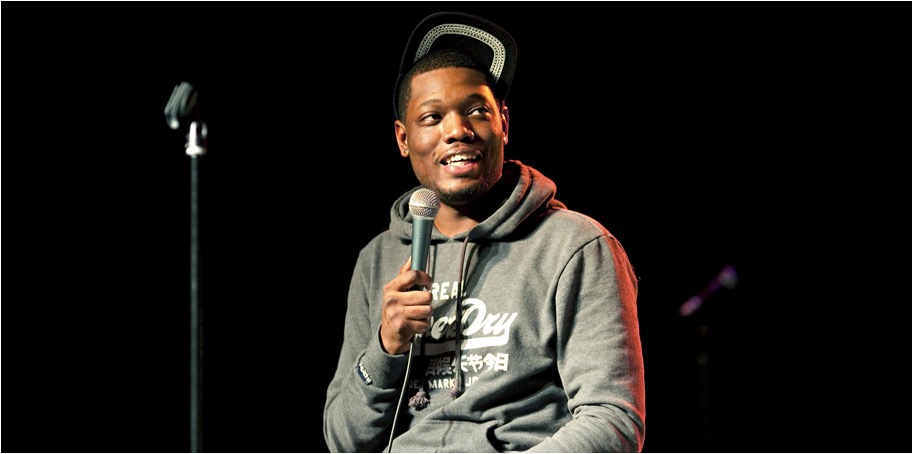
I like Michael Che. I like the fact that he’s regularly on the air. I like the fact that he’s performing. I think that Michael Che’s strength is when people feel like they know him. The thing is, twenty-five minutes into his new Netflix special, Michael Che Matters, I didn’t really feel like I knew him.
Then—for a moment—he started talking about his mother.
Before that, he set the moment up by talking a little bit about religion. “I believe in God. I just don’t like to bother him,” he said, and it’s a good line—but it deserves a better pivot than a few serious sentences before asking, “How are we going to get rid of this baby?” As a joke, it’s relatively close, but it’s not quite where it could be.
“My Mother’s a Christian,” he said. “My mother’s a very religious woman. She used to take me to church all the time.” He paused for half a beat, then added, “It was cool.”
And that’s my guess at who I think Che is: a relatively low key guy who isn’t really too bothered by the world (note the way he declares that he likes Donald Trump, but doesn’t think he should be President), which is why I’m thrown by these instances in the special where he seems to listen to the idea of the archness of his jokes rather than to the audience itself, even though the audience still laughs along, and even though one of Che’s strengths seems to be in the idea of quietly poking around in deeply odd, quiet moments, too. (Think of the line, “He performed miracles and studied carpentry” and how he expanded upon it, or the way in which he spoke about a white girl borrowing someone’s hat—to dance.)
As someone who grew up on Letterman, I should be all for these instances in the first twenty minutes where he leans into the written material with a little too much emphasis.
Which is fine. As someone who practiced comedy years ago and still feels like he has a rightful claim of empathy for taking part in the whole process, I know I’m inclined to give the profession a pass when so many people are so inclined to get so much so wrong outside of the profession, and—what’s more—Che picks up rhythm after he’s more than halfway through: rich white girls from Seattle are blamed for murdering Biggie, the murder dubbed “phase one” in the takeover of Brooklyn, and the special really takes off from there (“I’d gentrify the fuck out of ISIS.”) He readjusts his rhythm, and the show takes off from there.
It arrives at a place where the aforementioned quiet and poking about can slide into a higher octave of more natural dudgeon—the lack of a carpentry museum dedicated to the son of God seems to strike the right level of personal offense, the bravery of white women in finding and commandeering a pitbull only to put a sweater on them carries with it a certain moral urgency, and more. Che’s not there yet, but he’s on his way.
Evan Fleischer is a writer-at-large. In addition to Paste, he has written for The New Yorker, The New York Times , The Washington Post, The Guardian, and numerous other publications.


